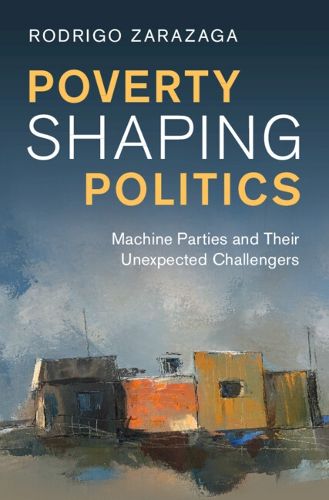Readings Newsletter
Become a Readings Member to make your shopping experience even easier.
Sign in or sign up for free!
You’re not far away from qualifying for FREE standard shipping within Australia
You’ve qualified for FREE standard shipping within Australia
The cart is loading…






Drawing on substantial original interviews and fieldwork data from Argentina's marginalized urban areas, Poverty Shaping Politics reveals how the spatial segregation of slums and vulnerable neighborhoods compels the poor to seek out local political brokers to access resources, while politicians depend on these brokers to navigate poor areas and garner political support. Rodrigo Zarazaga uniquely demonstrates that the establishment of broker networks is driven more by the conditions of segregated poverty and vulnerability than by the inherent capabilities of 'machine-like' parties. Using the case of Cambiemos challenging Peronism in poor districts, Zarazaga provides the first account of a party building broker networks to contest a dominant machine party. While existing literature suggests that sustained economic development can weaken machine parties, this book shows that entrenched and widespread poverty can also threaten their hegemony.
$9.00 standard shipping within Australia
FREE standard shipping within Australia for orders over $100.00
Express & International shipping calculated at checkout
Drawing on substantial original interviews and fieldwork data from Argentina's marginalized urban areas, Poverty Shaping Politics reveals how the spatial segregation of slums and vulnerable neighborhoods compels the poor to seek out local political brokers to access resources, while politicians depend on these brokers to navigate poor areas and garner political support. Rodrigo Zarazaga uniquely demonstrates that the establishment of broker networks is driven more by the conditions of segregated poverty and vulnerability than by the inherent capabilities of 'machine-like' parties. Using the case of Cambiemos challenging Peronism in poor districts, Zarazaga provides the first account of a party building broker networks to contest a dominant machine party. While existing literature suggests that sustained economic development can weaken machine parties, this book shows that entrenched and widespread poverty can also threaten their hegemony.